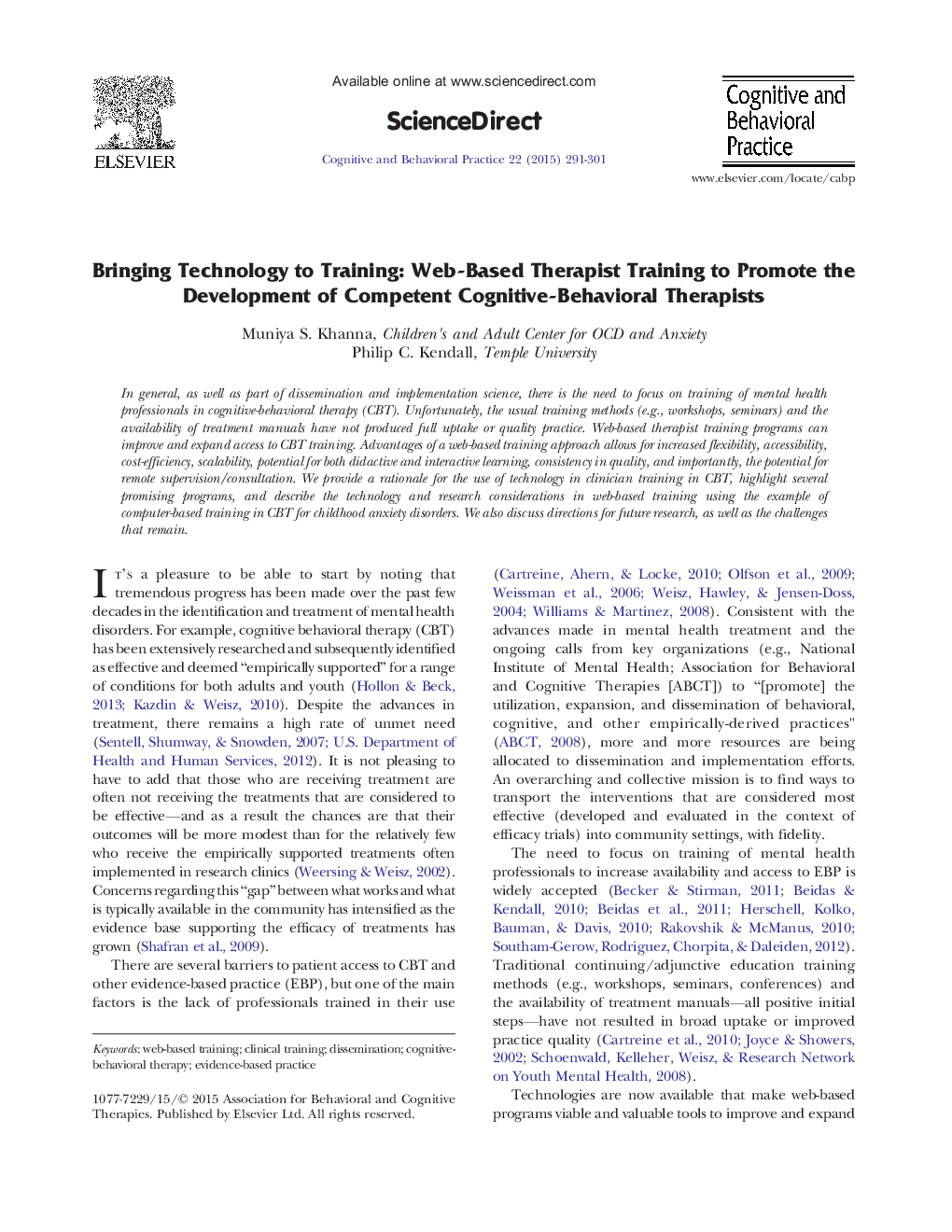| Article ID | Journal | Published Year | Pages | File Type |
|---|---|---|---|---|
| 904285 | Cognitive and Behavioral Practice | 2015 | 11 Pages |
•Web-based training programs can expand access to CBT training and supervision.•Advantages of a web-based approach include accessibility, cost, and potential for remote ongoing consultation.•Though preliminary, findings support feasibility and acceptability of web-based training
In general, as well as part of dissemination and implementation science, there is the need to focus on training of mental health professionals in cognitive-behavioral therapy (CBT). Unfortunately, the usual training methods (e.g., workshops, seminars) and the availability of treatment manuals have not produced full uptake or quality practice. Web-based therapist training programs can improve and expand access to CBT training. Advantages of a web-based training approach allows for increased flexibility, accessibility, cost-efficiency, scalability, potential for both didactive and interactive learning, consistency in quality, and importantly, the potential for remote supervision/consultation. We provide a rationale for the use of technology in clinician training in CBT, highlight several promising programs, and describe the technology and research considerations in web-based training using the example of computer-based training in CBT for childhood anxiety disorders. We also discuss directions for future research, as well as the challenges that remain.
